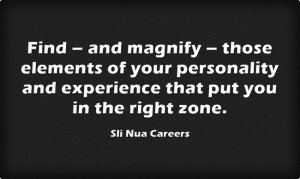By Mary O’Brien-Killeen, Career Coach, Sli Nua Careers (Claremorris)

Q: I am writing a personal statement for UCAS. I am not quite sure how I should go about it. Can you give me some tips? (LT, email).
A: For those who might not immediately recognise the acronym UCAS, it stands for Universities and Colleges Admissions Service (UK).
UCAS offer very useful guidelines and you should follow those closely in terms of word/character count. On their site, they even show you how to mind-map your personal statement (http://goo.gl/DgLjE6) before writing it – this will help you clarify what you intend to say.
Here are some tips for crafting the statement:
- Tell them why you want to study in this field – drawing on personal experiences in your life to date, if possible. For example, someone looking to study medicine might mention their first aid training and experience with their local Order of Malta;
- Why are you suitable for study and ultimate work in this field – what personal attributes do you have, what have you been drawn in your studies and hobbies to date, and so on?
- Refer to the subjects that make up the course, why you are attracted to them, and why you feel you would flourish studying them;
- Show a deep understanding of the field;
- Show enthusiasm for working in this area including some reference to the career path you are contemplating subsequent to attaining the qualification, without limiting yourself too much.
As in everything else to do with careers, relevance is more important than chronology. Find – and magnify – those elements of your personality and experience that put you in the right zone vis-a-vis the course for which you are applying.
Make sure somebody else reads it first, not just for content, but for spelling and grammar.

Focus on job at hand is crucial
Q: The interview had gone well. I felt I had built rapport with the panel and talked myself up as much as I could, without – hopefully – going too far. Right at the end, they threw an unusual question at me: “If you were hiring for this job, what you be looking for in the successful candidate?” I didn’t really know what to say – I wasn’t ready for prescribing the job in that way. I mumbled something about a hard worker who would go the extra mile, but I know I didn’t convince them. Any suggestions? I haven’t received word yet if I’ve got the job, by the way. (SC, email).
A: The fact that this question threw you suggests to me you hadn’t sufficient preparation done.
In reality, your preparation should have featured that very question or approach: what are they looking for in the successful candidate.
Without looking at it that way, there is a danger you will go into an interview and simply talk about yourself without relating it directly to what the employer is looking for in the right person. You say you built rapport, and perhaps you did: but was your interview focused and relevant?
In interviews, people regularly try to appear competent and likeable but neglect to make themselves relevant. The surest way of making yourself relevant is to think in your preparation about what the winning candidate will have, say and be.
I wasn’t there, SC, so I can’t be sure, but it sounds to me like you have natural communication skills – and if you can add intense knowledge of the job to your interview performances, you should do very well.
Mary O’Brien-Killeen is a Career Coach with Sli Nua Careers in Claremorris, Co. Mayo.
Make a booking HERE for CV Preparation, Application Form writing, Interview Training and Mock Interviews.
More articles from her blog can be accessed HERE